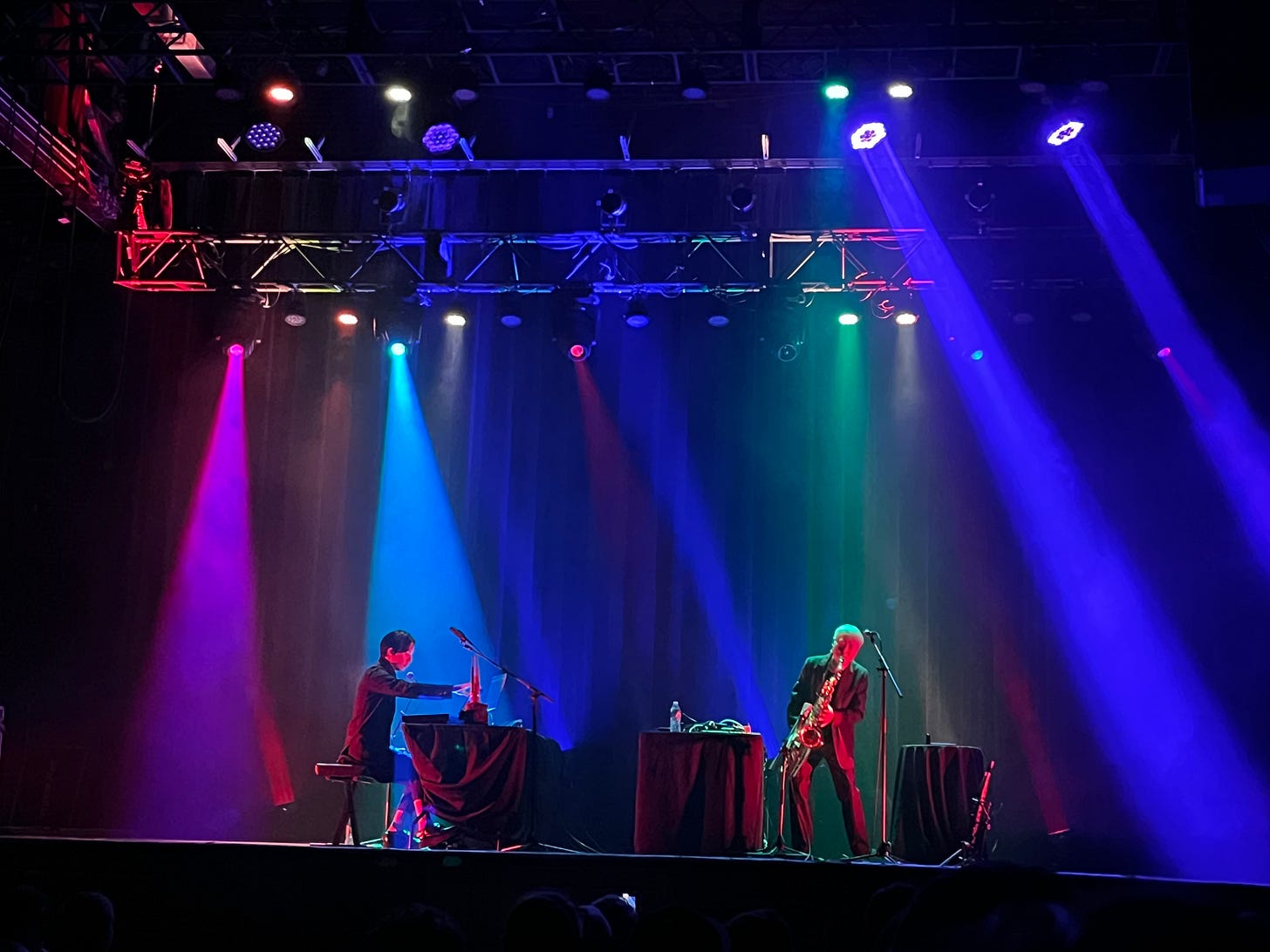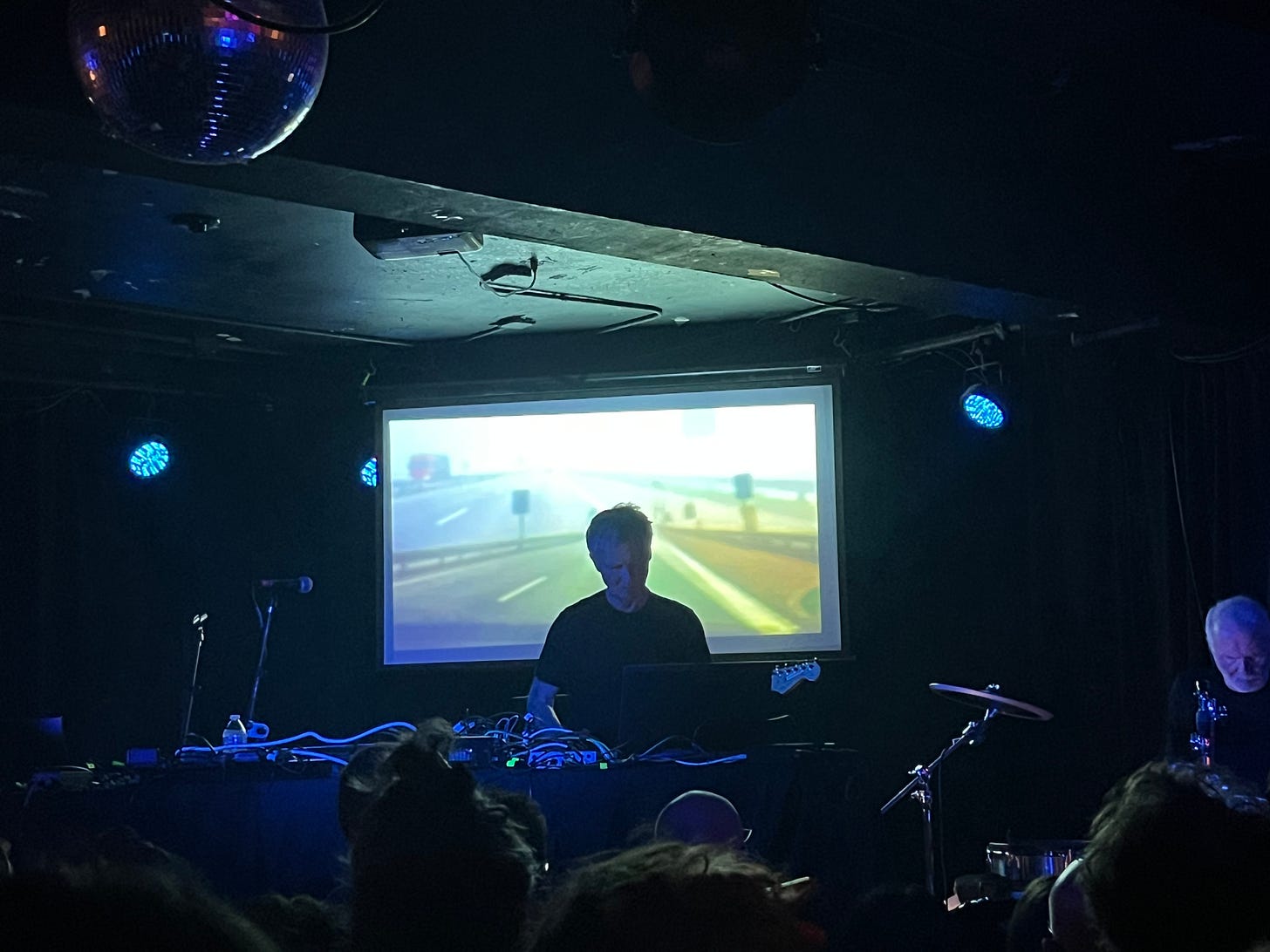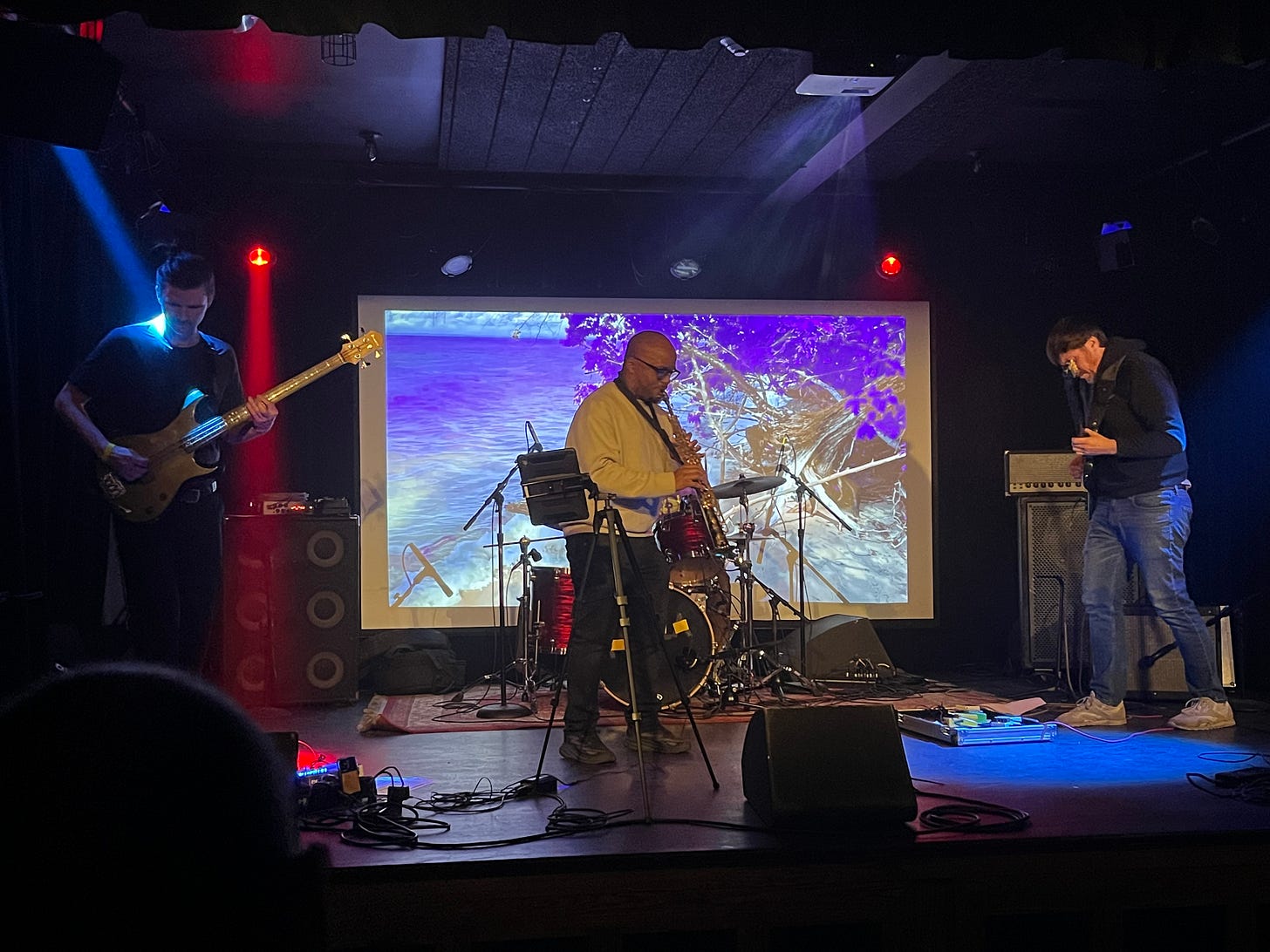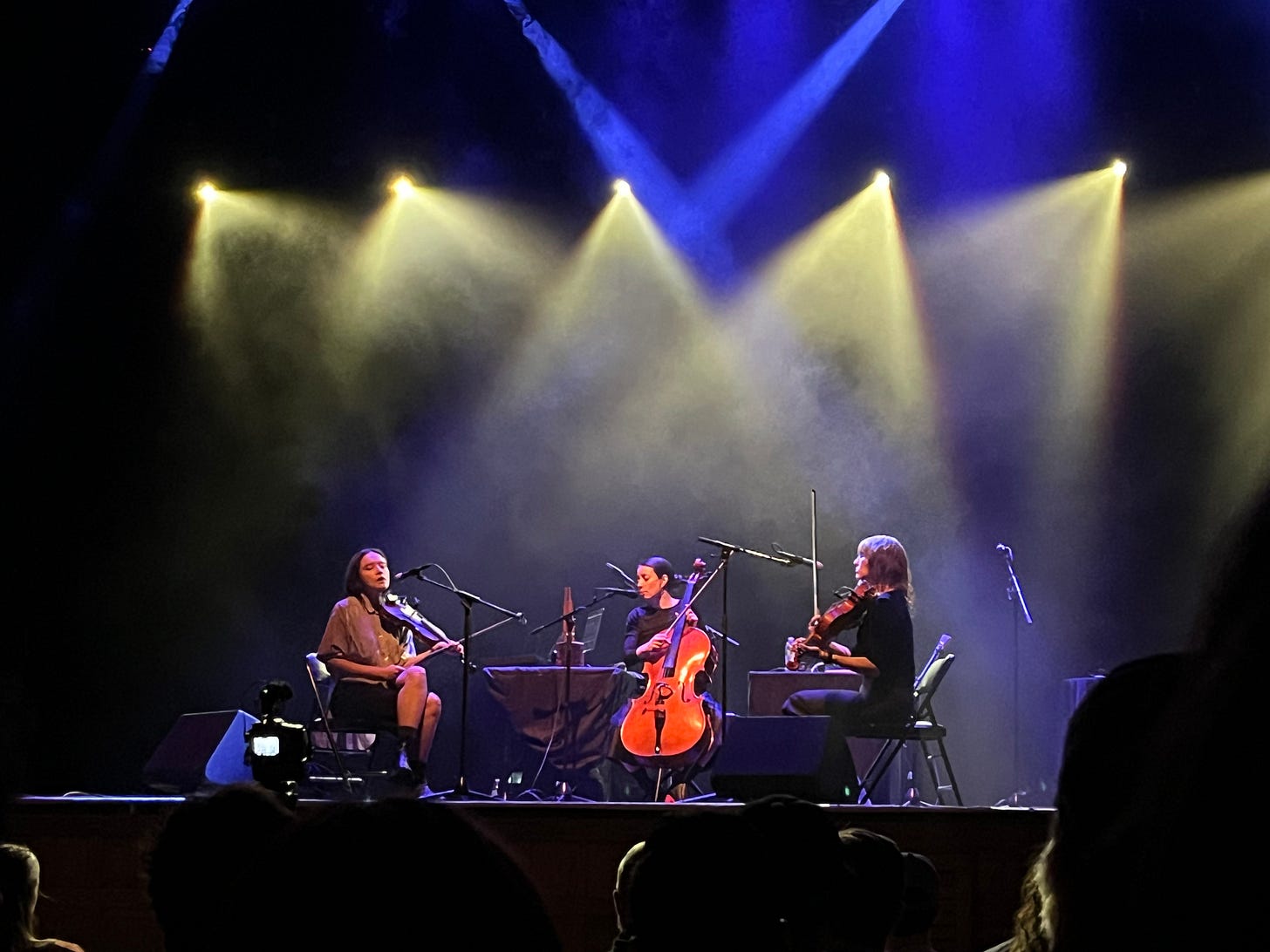Hello everyone, and welcome to issue #83 of my newsletter Crow’s Nest. Thank you for opening, reading, listening, consuming, whatever the appropriate term is for your interaction with this. And thank you as well for your patience between issues; as usually happens, April was busy in my personal life such that I didn’t find a weekend to crank one of these out. Well, we’re here now, and still around for it all, and there’s a bounty of records I’ve discovered since my last issue for you to dig into below.
Many records can take you back in time or place, whether personal or in the context from which they emerged. Few records, in my estimation, transport you back as viscerally as this record does to the Ras Hotel in Addis Ababa, Ge’ez Year 1968 [1976]. From its first notes, the droning organ, 6/8 percussion and waltz melodies are impeccably balanced, an intoxicating mix whose bewitching qualities feel all-enveloping; I listened to this at least daily for a week after first coming across it. Quite literally the first multi-tracked recording made in Ethiopia, Ibex Band (which later became Roha Band) here demonstrate something of the peak of their powers and influence, even as this record was made under curfew and censorship imposed by the Derg regime. The first of what I can only hope are many more reissues to come—the liner notes claim the group recorded 250+ records in the 70s and 80s—Stereo Instrumental Music is a phenomenal introduction to the band and sound if you’re not already familiar.
The steady drip of formally released Les Rallizes Dénudés recordings over the past 3 years has been a beautiful racket to acquaint myself with. While prepping 屋根裏 YaneUra Oct. ’80 last year, Temporal Drift discovered a tape so clean they initially mistook it for a studio recording. Capturing a gig at the same venue the month prior, 屋 根 裏 YaneUra Sept. ’80 highlights the short period where Fujio Yamaguchi dueled with project leader Takashi Mizutani on guitar. The highlight to this one is the 16-minute opener ‘氷の炎 / Flame of Ice’, with a middle part locking in to a fast, quasi-funk groove while Mizutani’s buzzsaw axe shreds the upper register. Even if you know the main riffs of their songs by now, it’s a stunning, drop what you’re doing and Listen moment worth the price of admission by itself.
Local group Snooze label themselves ‘happy heavy mathrock’ on their Bandcamp page, and the tags are an assemblage of genre descriptors that would usually only merit respectful applause from me were they opening a show I was at, not at all for them. But their name is highly misleading. Despite numerous disjointed elements including heavy riffs, uncommon time signatures, and a 21-piece choir at different points, the group have assembled a masterful, prog-adjacent record unifying these elements into an ecstatic masterpiece. It’s a bit outside my wheelhouse to describe this better, but trust me, even if you don’t think it’d be up your alley, give it a listen or two or three and let its glory run all over you.
Bill Converse might be living in Austin right now, but his roots are clearly in the 90s Midwest rave scene. I wasn’t familiar with his work before this record on Dark Entries, but his 303-heavy workouts demonstrate a mastery of the genre and ought to solidify his reputation as a living legend and master at work, if he weren’t already.
There’s no shortage of artists and groups making dreamy shoegaze or bedroom pop these days, and it’s still worth celebrating when one manages to cut through the thicket. As others pointed out, it’s the songwriting on Maria Somerville’s second record Luster that makes it stand out; many can make an interesting texture and a halfway decent hook, but few can piece it together into something as strong as ‘Garden’. Grounded in her hometown of Conamara on Ireland’s West Coast, it’s similar to the material Copenhagen’s 15 love/Escho labels-centered scene has been putting out. If you’ve not yet given it a spin as you’ve distrusted the hype it’s generated, this is your sign to give it a chance.
Drone-metal abstractionists Apparitions weren't on my radar before some tweet compelled me to open and save a browser tab for them, but their new album Volcanic Reality has been an addictive listen. A guitar/modular synth/drums instrumental trio, the influence of Sunn O))) is obvious on guitarist Andrew Dugas. It's Grant Martin's arhythmic drumming that's the star to me, providing some texture and grounding where, at a lower volume, the other components might disintegrate into the ether. I'm not a metalhead by any means but if they make the trip up from Houston, you'll likely see me at the show in the sea of black tees.
I'll keep this description short:
Japanese
Orchestral
Jazz-Noise
From 1985!
It's not skronk-y free jazz, and at times often feels closer to droning ambient/electroacoustic/improv music. But a cut above the typical record or loft performance in that realm for sure, and well worth sinking your ears into.
I don’t put too much stock in artist/band/group/album/song names: while many can be descriptive for those familiar with genre naming conventions, there’s frequently little correlation to the quality of the material within (and many good groups have objectively silly or stupid names). That being said, Romance in the Age of Adaptive Feedback is quite a fitting descriptor for this record from Unspecified Enemies aka Louis Digital. The electro-techno suite feels like a reconstructed vision of many out-of-date tropes in dance, notably sci-fi sonic palettes and 90s rave grooves, filtered through the more day-to-day advances in tech since then. Fittingly, this record’s origins date back nearly 20 years and is in fact a recreation of material from that time, when techno-optimism felt sincere and was not the tell of a grifter hunting for new marks, especially from high perches.
You’d be forgiven for thinking Mica Levi produced Raisa K’s debut album. After all, both are part of Good Sad Happy Bad, and Raisa’s production style often resembles the circular figures that populate Levi’s work. Out on 15 love, longtime readers no doubt know what Affectionately ought to sound like based on my namechecks, particularly if you stan Tirzah. But by no means does that reduce the power of these tracks created out of deceptively simple figures, detailing some of the fleeting, quotidian feelings that nevertheless constitute some of the most important moments of our lives.
Sydney’s Grinding Eyes make some heady, heavy shoegaze-indebted psych that’s a bit different than you might expect for an antipodean group. Not exactly a revolutionary sound here, but nevertheless one that hits the right notes when you’re looking for it.
Getting things slightly wrong when first starting out on a project or something else new to you is one of the great channels for innovation. Richard Larcombe’s Lost Crowns project understands this instinctively, taking inspiration from a jam session over Zoom that fell out of sync to learn new instruments and push the boundaries of their skills. It’s progressive rock-y without sacrificing groove for pretentious virtuosity, unsettled but nearly cohesive enough to retain interest, and above all determined not to let a lack of perfection or comfort with the material stop them from giving 100%. It’s inspiring for sure, making you want to challenge yourself as you grow and develop in this new role you’ve put yourself in. Quintessentially British to its core, I find it engaging even where other semi-challenging ‘pastoral’ records from the country leave me cold. The album art centering an unstable balance on a ladder feels spot-on for describing this material.
Portuguese producer Jonathan Uliel Saldanha has been on a tear recently. In the past few months he’s put out a choral record with Kingdom Ulfame Choir as Kingdom Molongi and a second record with the Kampala Unit (their first being featured in the inaugural edition of Crow’s Nest), both on Nyege Nyege Tapes. I need to spend more time with both of those records, surprise surprise, but the record of his I’ve most enjoyed recently is one that slipped out quietly from his Horror Vector label last year, as far as I can tell. Boca Muralha is a soundtrack to a dance piece of the same name by Caterina Miranda, constructed out of pointillist vocal sampling and dub effects. Modern dance [the performance art] isn’t something I’m super familiar with, but the record, which comes across like a cross of ca. 2013 Andy Stott, Holly Herndon and the Haxan Cloak, is another facet to someone who’s clearly a Renaissance Man working in the present age.
Brighton quintet Jetstream Pony by no means reinvent the wheel on this indie pop/post-punk/insert-well-defined-rock-subgenre-since-the-80s-here record, but when the songs are this well executed, that’s always worth celebrating and highlighting. I hear a bit of The Umbrellas’ Paisley underground sound here, or some of the genre originators on the opposite end of Britain, but no doubt your own reference points and past memories of excellence in this realm will guide you to similar conclusions. [Editor’s note: while assembling this post in the editor, I came across a link to one of their earlier records buried in a browser tab for past future listening. That’s probably indicative of their quality.]
A baker’s dozen of features seems sufficient for issue #83 of Crow’s Nest, so that’s where I’ll stop things today. That’s roughly a third of the records I’d marked for potential inclusion since the last one. So, thank you for reading and listening to everything in here, I hope something within has captured your attention that you weren’t otherwise aware of. There will be a little gap before the next one—this time in two weeks I’ll be recovering from a 2-day rave in the Bay Area—but hopefully not as long as this last one. Until next time.














